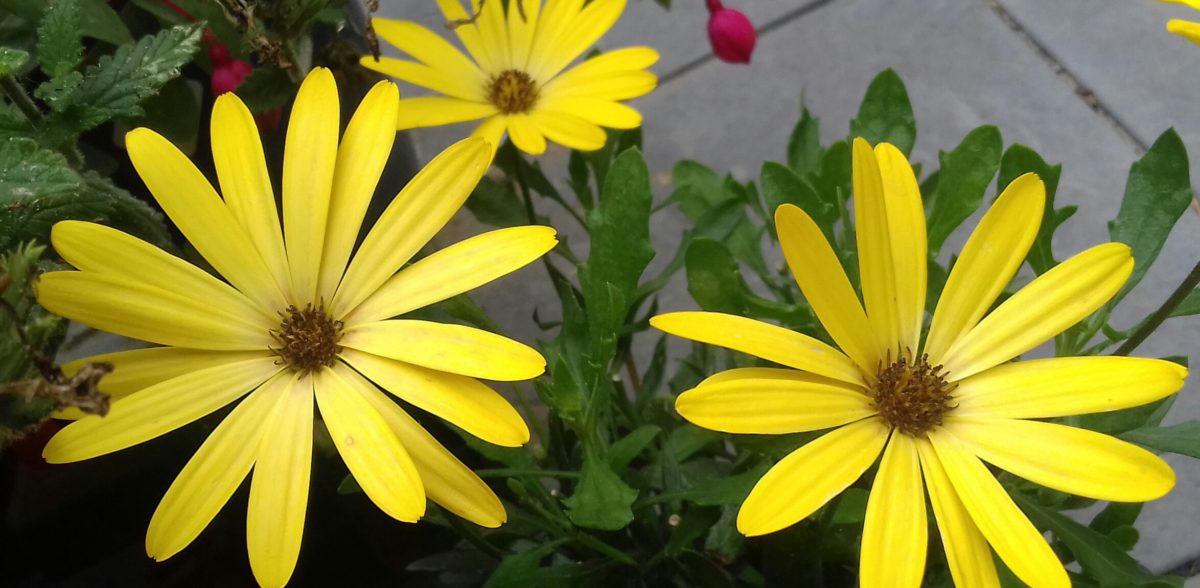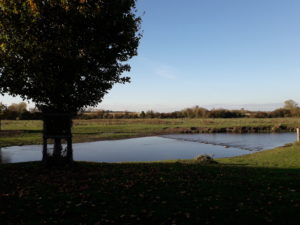It is counter intuitive right?
Because our, or at least my natural instinct, is to move away from that which hurts.
What I would like to say, especially in view of my profession, is that I’ve got this stuff nailed. But of course, this is real life and I am one of those real live, messy, imperfect humans! One that has to learn, learn and learn again, how to be with the inevitable. The ouch.
None of us like the ouch.
Yet to refuse it, is to allow it to cause a whole heap more ouch’s until we turn to face it.
I experience this again and again with the ouch of grief.
Every time a new wave knocks me to the ground, I just want to dust myself down and return to normal duty’s as if it didn’t and it doesn’t, hurt.
Like most of the human population, I don’t want to register the pain because I don’t like feeling pain and I do like not feeling pain!

So every time, I have to re-learn all over again, that the only way to live with the ouch that accompanies grief, is by acknowledging its presence and effect and responding with compassion rather than frustration.
Yet my first instinct is still to fight it. I want to ‘win’. By winning I mean, I want to be ok and not let the grief leave me feeling not ok.
But, it is only when I can own, accept and embrace my ouch inducing not ok, that I begin to become a little more ok!
It’s a paradox.
One that is eased when I am reminded that it is ok to acknowledge my grief. I can then relax and stop fighting it. I remember that this does not mean that I am failing, it is not a sign of weakness, it does not mean that I am wallowing, or that I will feel miserable for ever more. It simply means that the grief needs some care and attention.
I’ve had a few reminders of this recently.
I arrived at my house group the other week to discover that we were watching a Nooma DVD (short Rob Bell film on a life theme), called Matthew. None of us knew what it was about. But it turned out to be on death, grief and the importance of making time and space to allow WHATEVER thoughts and feelings need to come out. It wasn’t talking about just allowing the nice/positive/good/acceptable/Christian thoughts and feelings but ALL the feelings, especially the ugly and unwanted ones.
It was a timely reminder.
And it came only two short days after a colleague had reminded me of exactly the same thing about making time and space to allow grief. Not banishing it. Not distracting away from it. But actively inviting it to come and take up its rightful place within my being and my day.
Both of these served to remind me that I do not need to FEAR my grief or any of the feelings that accompany it.
What I do need is to keep practising over and over again what it is to recognise, allow, value, respect, accommodate, trust, welcome and tend to my grief.
As in every time it arises.
Because I have noticed that whenever I finally stop fighting and say to myself, ‘Ok, you feel miserable/angry/resentful/whatever and you are allowed to feel that, just be with it’, it begins to dissipate.
And when I remember to go easy on myself and change down a gear, life becomes so much easier to manage.
I’ve been reflecting on this recently whilst out on my bike. I’ve taken to cycling to work once a week. It allows me to incorporate a bit of physical activity with time out in the fresh air amongst what is otherwise a day spent sat on my backside, inside. I like it. The cycling that is.

Anyway, as I was huffing and puffing my way up a hill recently, repeatedly changing in to lower gears, it occurred to me that this is like life. As in, when things get difficult, or the pressure is on, or we have an unexpectedly high work load, or we are simply dealing with emotional stuff, we, read I, can sometimes expect myself to just keep travelling in exactly the same gear at exactly the same speed.
How ridiculous.
If I don’t even do this to myself on the bike, why do it to myself in life.
What I really need of course is to change down a gear, slow down, make allowance for the new situation and reduce my expectations accordingly. In other words, to partner with myself to be able to keep going but at a realistic pace, rather than setting myself up to fail by attempting to continue in the same gear and at the same pace.
Sigh.
No matter how much I think I know this stuff, I still have to learn afresh every time the new wave hits. Ugh! I wish I was a faster learner!

But, there is another side to facing death, grief and the accompanying ouch. For if we can face it front on, it can urge us to complete an ongoing reassessment of life. What is important and what is not. What gets squeezed out or constantly postponed and what am I going to do about it.
As a result, one of the steps I have taken is to book my return flight to New Zealand. The place where the family I lived with and the beauty and culture of the land was so significantly life changing and healing. It was here that I entered in to a relationship with the living God. Life has never been the same again. Thankfully.
But, it has been a whole decade now since I’ve managed to return. Afterall, NZ is a long way to go and it is expensive. Legitimate reasons right? But this year, when asked to go, I didn’t hesitate. No more delaying what is important.
None of us can guarantee how long our future will be or how much time lay ahead to see the places or people we love. And so, I booked my ticket. Not for next year or the year after or in another decades’ time. I don’t want another single year to pass without doing this so important thing.
Nothing will be the same of course. All will have changed in the past decade. The people, the place and of course me. But I need to go. And I want to go. So I am going.
A few months after booking said flight the tax man very kindly granted me a generous tax rebate to fund my trip. Result! The plus side of my reduced capacity to work and thus to earn this year!
Whilst discussing this NZ trip with my supervisor, who was able to own and express their envy (!), they shared with me how a friend of theirs who was rather wealthy, had always had a dream to go to a particular country. They put it off and put it off until the unspeakable happened. They got a terminal diagnosis and were in too poor health to go. Whilst this friend was looking head long in to the face of death with no choice to go back and do the things they had wished to do, they urged my supervisor not to make the same mistake.
Wise words.
Ones we would do well to heed whilst we still can.
It is all too easy to busy and distract ourselves from anything unpleasant for the entire duration of our lives only to arrive at the shores of death to realise that we never quite got around to doing what we really wanted.
I don’t want that.
No matter how short or long, how painful or how unpredictable this thing called life is, or how utterly awful the death of someone I love is, I still want to try and of course at times fail, to look both life and death square in the eye. I want not just to see the ugliness of pain, suffering and premature death but also to see the great beauty that life still offers.
I don’t want to miss what is possible because of what is not. And if I have to slow down again and again and again to allow more healing to happen to facilitate the longer-term goals and desires, then that is ok. (Sometimes!).
I don’t want to drift through life and in to death. Instead I choose to proactively engage, embrace and take steps towards that which is important. Even when this means slowing down AGAIN to allow for more healing.
At least I’m trying to.
What is it that YOU have delayed and postponed and not made the time or space to make happen in your life?
Time is limited.
For us all.
Make it count.



